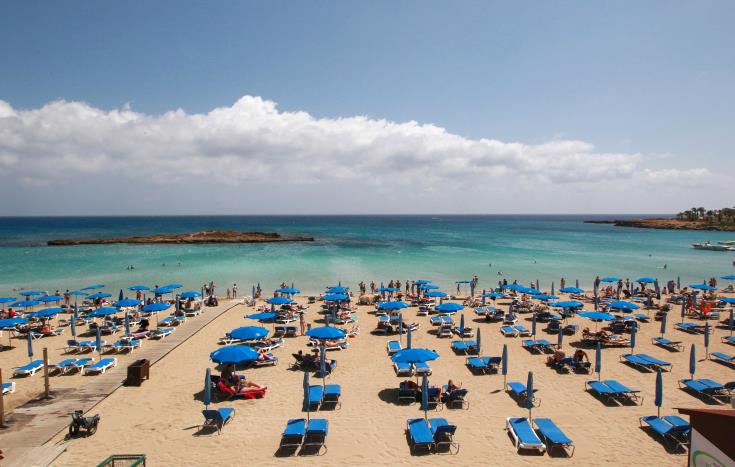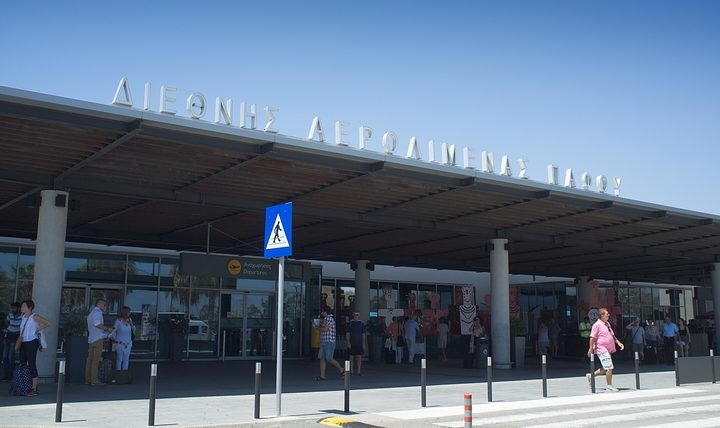As Cyprus gears up to welcome tourists back, news from the island’s biggest market, the UK, where authorities have told Britons they might not be able to travel this summer, has stakeholders fearing another nightmare.
In the UK, health experts and officials have been telling people to hold off from booking holidays abroad, going as far as introducing a law making it illegal to leave the country for non-essential travel until the end of June.
“Cyprus tourism is in for another nasty shock after people in the UK were warned that foreign holidays this summer are ‘extremely unlikely,” said a UK based travel agent.
Noel Josephides of Sunvil Travel and former chairman of the association of independent tour operators (AITO) said the latest developments could simply mean that Cyprus will not be seeing many tourists from the UK, its largest market, this summer.
“We were arguing that Cyprus had to step up its game and send out clear messages to tour operators and tourists in time, but quite possibly we have been beaten by decisions taken on the ground in the UK,” said Josephides.
Cyprus clarified that people from the UK who have been vaccinated against COVID-19 would be allowed entry without further requirements.
“When finally, Cyprus got its story straight, we had started to see bookings for the summer months come in.
“Before experts said that probably travel would be off this summer, we had 71 bookings for Cyprus. We had zero bookings in the week that followed,” said Josephides.
He said that his agency would get 100 bookings a day for summer holidays in Cyprus during an average year.
“However, people have been put off by experts telling them they might not be able to travel this summer”.
A week ago, in an interview with BBC Radio 4, Dr Mike Tildesley, a member of the COVID-19 modelling group which advises the UK government, said there was a danger that new variants could jeopardise the vaccination programme.
Dr Tildesley referenced the possibility of British tourists returning from abroad introducing the South African strain of the virus, which is considered more resistant to vaccines.
“The more we can delay the holidays, the better,” he commented.
Josephides said tour operators in the country are in despair, as they do not expect people to book holidays before the end of June.
Tour operators in Cyprus also fear the island may be in for another disastrous year regarding tourist arrivals and bookings. They told the Financial Mirror that half the year is already a write-off.
“We fear another disastrous year with what is going on in the UK; we do not expect to see any tourists before the end of June,” said Charis Papacharalambous, spokesperson for the Association of Cyprus Travel Agents.
“From our point of view, 2021 could be as disastrous as 2020. With tourists starting to come in towards the end of the summer, even if autumn months do extremely well, we would still be more or less at the same levels as last year,” said Papacharalambous,
He said Cyprus’ bad epidemiological performance combined with a slow vaccine rollout on the island and the rest of Europe leaves little room to be hopeful.
“Just the first five months of the year account for 25% of the island’s tourism, which has already gone down the drain.”
Asked whether Cyprus could do damage control, Papacharalambous said that would call for authorities to weigh how much risk they can afford to take.
He argued that Cyprus would have to be willing to loosen its tight controls on who is allowed to enter the country.
“Authorities will have to decide whether we could let in more tourists, whose country of origin could be in red, without imposing a quarantine, but suffice with having them tested.
“Whether we like it or not, the vast majority of tourists come here for the sun and sea.
“So, by default, their contacts are limited to hotel and other hospitality staff.
“That being said, the health authorities will have to consider vaccinating hospitality workers as a priority for the tourism sector to function safely.”
Papacharalambous argued that along with vaccinating staff, tourist areas could function as bubbles as is the practice in other Mediterranean countries such as Greece.
“Cyprus should also consider allowing people who may not have been vaccinated but have antibodies after having the disease. This is something that Portugal and the Canary Islands have implemented”.
He said Cyprus should waive its demand for people coming from a country classified as orange to have two PCR tests, one before the flight and on arrival, as it increases the cost to visit the island.
“Cyprus should only ask visitors from these countries to carry a negative PCR test and get tested for free upon their arrival with a rapid test.”
Wait and see
Acknowledging that Cyprus is in for a rough summer, authorities are targeting tourists from countries outside the EU, not just the UK, by lifting the need for travellers to quarantine upon arrival, believing that the move will increase air connectivity.
The Deputy Ministry of Tourism announced that from April 1, the island would open for arrivals from the UAE, Saudi Arabia, Qatar, the UK and Israel, waving the demand for travellers to quarantine.
Travellers from these countries will at most be requested to take two coronavirus tests, one before boarding their plane and another upon arrival at Larnaca or Paphos airport.
A ministry source told the Financial Mirror the decision was taken within the context of an earlier government decision to focus on a list of close to 60 countries important to the island’s economy.
In the case of the UK and Israel, the deputy ministry has said that people vaccinated with an EU approved COVID-19 vaccine will be allowed entry to Cyprus without any other requirement.
Asked about recent developments in the UK where a ban on international travel has been introduced until the end of June, with those breaking the ban slapped with a £5,000 fine, the source said authorities monitor developments.
“We are concerned, but there is nothing we can do at the moment.
“We are keeping an eye on developments while doing our part, which is to facilitate arrivals as much as we can.
“This is why we have waived the quarantine for visitors from some countries,” said a Tourism Ministry source.
Due to coronavirus pandemic restrictions, tourist arrivals plunged by 84.1% in 2020 from 3.97 mln tourists in 2019, marking Cyprus’ worst tourist season.
British tourists made up one-third of all tourist arrivals in pre-COVID 2019.
The pandemic ended four successive record years of tourist arrivals that helped Cyprus emerge from a financial crisis in 2013.










